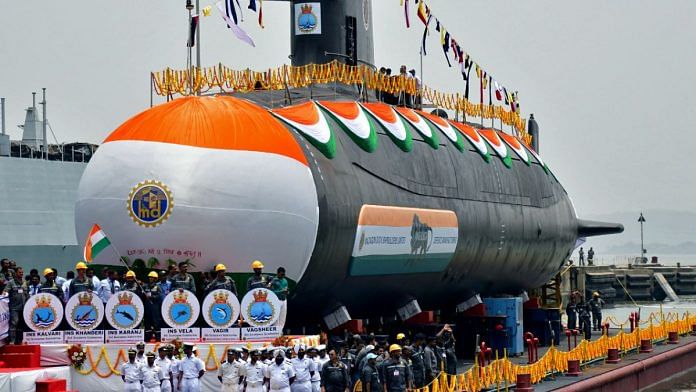In October 2021, the government announced a major reform in the production segment of the Defence Industrial Base ecosystem by corporatising the operations of the 41 factories hitherto under the Ordnance Factory Board. Seven Defence Public Sector Undertakings, based on the commonality of functions, were created — Munitions India Limited, Armoured Vehicles Nigam Limited, Advanced Weapons and Equipment India Limited, Troop Comforts Limited, India Optel Limited, Gliders India Limited, and Yantra India Limited.
The justification for the reform was that the production units would be brought under the Companies Act and lead to improvement in efficiency, competitiveness and quality of products. Except for Yantra India Limited, all DPSUs have shown a profit and increased export orders. However, there has been a delay in the appointments of suitable heads of several DPSUs. It is apparent that the systems of selection and appointment of key individuals in the Strategic Business Units are in need of reform.
Several DPSUs like Bharat Electronics Limited (BEL), Bharat Dynamics Limited (BDL), Bharat Earth Movers Limited (BEML) and Mazagon Dock Shipbuilders Limited (MDL) have been headless for long periods and are helmed by those who have been given additional charges. Also, key appointments like the directors of specific verticals within the production units remain vacant.
Some of the vacant posts, like that of the chairman and managing director BDL and BEML have been selected by the Public Enterprises Selection Board but are still awaiting their final appointment order by the Appointments Committee of the Cabinet.
The question that arises is that when nearly all the vacancies are known well in advance as they relate, primarily, to retirement dates, why are they not filled in time? And why do some remain vacant for over a year?
Also Read: Formed in 2021, 7 new defence PSUs to see steep decline in orders, finds Parliament panel
Selection and appointment process
The selection and appointment process for PSUs involves two steps. Firstly, the Public Enterprises Selection Board (PESB) publicises the availability of vacancies through its website, spells out the desired qualifications and invites applications by a particular date. Suitable candidates are shortlisted and called for interviews. The PESB constitutes Selection Committees composed of people who have the requisite expertise and would meet the necessary diverse requirements to accommodate different domains of knowledge.
The file is then moved to the ministry concerned and thereafter sent to the Department of Personnel and Training (DOPT) for the approval of the Appointments Committee of the Cabinet (ACC) which consists of the Prime Minister and Home Minister. Up until 2016 it also included the minister of the ministry concerned.
Also Read: New road to DBO not enough to stop PLA. Tunnel under Saser La pass is the solution
The cause of delays
Delays can take place at both stages of the selection and appointment process. Delays in the former stage could be a result of changes sought by the concerned ministry in the qualitative criteria for the vacant post. This could happen when changes occur in the production technology or due to the expanded range of products. It may also be that bureaucratic machinations are at play and criteria have been reshaped to favour a set of individuals who belong to a particular civil service.
A pertinent example is the delay in appointing the chairman and managing director of MDL after the previous incumbent retired in January 2023.
According to media reports, lobbying by civil servants and Indian Naval officers with regard to changes in qualifications and experience criteria has left the MDL headless. This is despite the fact that the selection process was initiated in February 2022.
Bureaucrats in the Department of Defence Production (DDP), moved for change in criteria and what is obvious from the changes suggested is that it is aimed at making it difficult for Naval officers and to privilege the Civil Services to occupy the position. The change in criteria has to first be approved by the ACC. The post has yet to be advertised by the PESB and therefore the MDL can be expected to continue to be headed as an additional charge by the Director (Finance).
This comes at a time when MDL has signed an MoU with a German firm in order to bid for a project worth thousands of crore to build submarines for Project 75 India (P-75I). It seems India’s criticality in the need for submarines is not a priority for people who have caused the delay even as they wield power without responsibility, leaving the Indian Navy to hold the baby.
If the ACC approves of this change in criteria and the selection process is complete. The next step will be the approval of the appointment order by the ACC.
This is a form of political control that is justifiable for critical and key posts. The ACC has to approve all appointments in the pay grade equivalent to the joint secretary and above. It’s also responsible for shifting officers to and from central deputation. ACC has a vast range of duties and therefore it is understandable that a certain amount of delay in the ACC order. This holds true for the indefatigable Prime Minister Modi and the overloaded Home Minister Amit Shah. The approval is first checked at the DOPT and thereafter signatures are obtained through file movement from the offices of the PM and the home minister — these leaders have to find the balance between shouldering the heavyweight of party politics and the responsibilities of governance.
There is a definite need to devolve the powers of the ACC while ensuring the PESB selects the candidate as early as possible, to obviate delays that could impact not only governance but also national security as is being witnessed.
Lt Gen (Dr) Prakash Menon (retd) is Director, Strategic Studies Programme, Takshashila Institution; former military adviser, National Security Council Secretariat. He tweets @prakashmenon51. Views are personal.
(Edited by Theres Sudeep)



